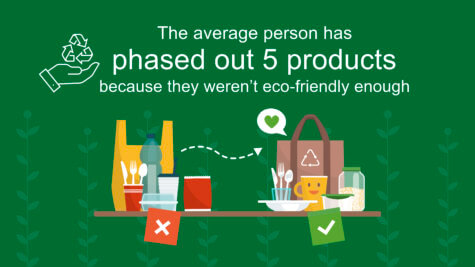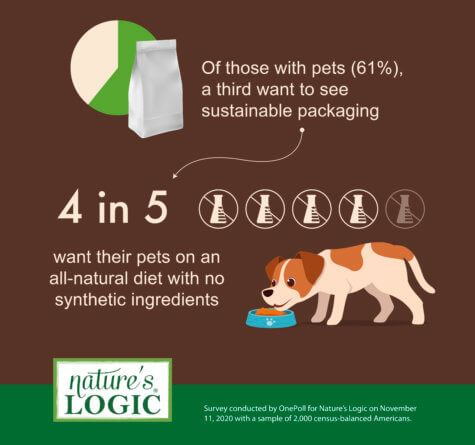NEW YORK — While COVID-19 might be on everyone’s mind right now, few people have forgotten the environment is still in trouble too. A new survey finds three in five Americans expect climate change to have a serious impact on their day-to-day lives in the near future.
The OnePoll study of 2,000 respondents explored top natural issues Americans would love to resolve with a magic wand. Water pollution (50%) came out as the top environmental crisis people wish they could resolve in an instant.
The survey also revealed saving endangered species (48%) and making the Great Pacific Garbage Patch disappear (47%) round out the top three items on the environmental wish list. Forty-six percent said they’d like to end destructive wildfires and another 43 percent would save the Great Barrier Reef in Australia if they could. Other troubling environmental trends respondents long to fix in an instant include ending rainforest deforestation (42%), repairing the ozone layer (42%), and reducing carbon emissions (38%).
How are Americans going eco-friendly?
The survey, commissioned by Nature’s Logic, revealed three in four people have already taken steps to lessen their environmental impact. Two in three said if they knew a product or its packaging they use wasn’t sustainably made they’d swap it out for one that was. Many have already put that principle into practice.

The average American has phased out five household products in the past year alone because they’re not eco-friendly enough. When asked what respondents want to see from the brands they purchase, 48 percent wished for fewer chemicals or synthetic ingredients and 43 percent would like to see an investment in cleaning up oceans and landfills.
Two in five think the brunt of responsibility of cleaning up oceans and landfills should fall on the shoulders of big corporations. More than 40 percent want brands to use renewable energy to power their operations. Those valuable principles don’t just go for products Americans use, they also apply for their four-legged friends as well.
Pet care was another sector that respondents think could be a bit more green. Of the 61 percent of respondents who own a pet, a third said that sustainable packaging that doesn’t contribute to depleting the earth’s resources would be a big step in making pet care more eco-friendly.
Three in ten think there should be a way to dispose of their pets’ waste that’s kinder to the environment than traditional plastic bags. Thirty percent would also like to see eco-friendly cleaning products for those pet-related messes.
Pet ownership is going green
David Yaskulka, CEO of all-natural pet food brand Nature’s Logic, says his company is seeing an increase in pet parents who look for more environmentally-friendly, natural choices.

“More and more people want to give their pet a lifestyle of health and sustainability,” the CEO explains in a statement. “Brands should make it easy for consumers to make better choices – like keeping synthetic ingredients out of food or using more environmentally-friendly packaging. And, using easy-to-read environmental certifications on the packaging goes a long way in helping consumers decide which products to choose.”
For those with a pet, 93 percent say their furry companion’s health is a top priority for them and four in five (82%) want their friend on an all-natural diet that includes only whole foods and no synthetic ingredients.
With so many unknowns in the pet food aisle, respondents have plenty of concerns about what they’re feeding their pets. Two in five (42%) worry about the quality of the ingredients while 31 percent worry about the health benefits their pet gets from the food. Nearly three in ten (29%) also have their eyes on their wallets and get concerned over cost.
“Despite the fact that pet parents would prefer no synthetics in their pet food, literally all of the top 10 best selling pet foods (listed by PetFoodIndustry.com) do, in fact, include synthetic ingredients. Consumers need to do their research: Nutrition from whole-foods with no synthetic vitamins, minerals or other ingredients is absolutely most beneficial for pets – and the planet – long term,” Yaskulka adds.
